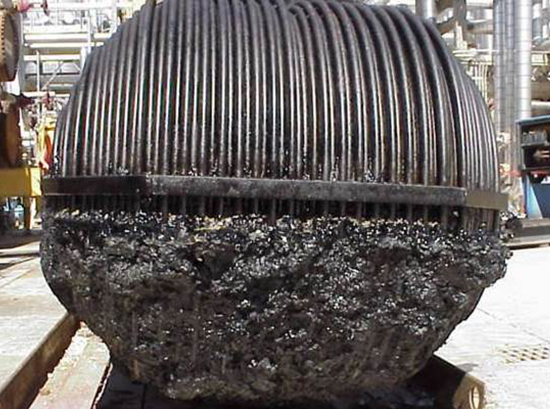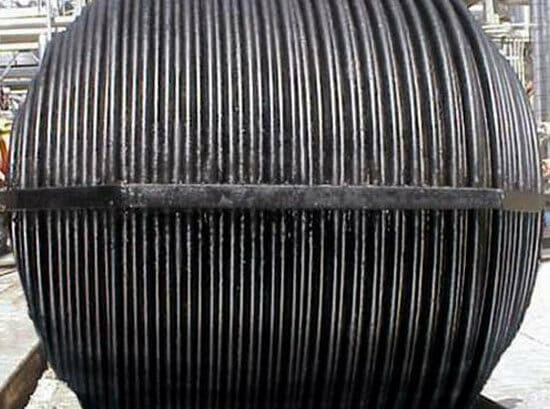From heavy hydrocarbons to scale deposits, FourQuest boasts the state of the art mechanical cleaning technologies and specialized chemistry to blast away all the residue that gets baked onto the equipment during operation to keep it in tip-top condition.
Heat exchangers tend to foul overtime, leading to pugging causing both excessive pressure drops and reduced heat transfer efficiencies. FQE offers a variety of methodologies for the proper maintenance of heat exchangers to keep your operating costs down during regular execution:
Many of these chemical applications can be applied in series to meet multiple requirements. Some examples include:
Chemical Circulation


This cleaning methodology floods each exchanger with a chemical solution that is circulated until cleaning is complete. While most exchangers require a chemical degrease, FourQuest will recommend a custom solution based on contaminants and cleaning objective. This process is not recommended for systems where circulation cannot be established.
Tube Hydrolancing
For exchanger tubes where circulation cannot be established, high-pressure mechanical removal is required. Using a high-pressure unit rated at 15,000 psig along with the cutting edge XLTC system we can clean multiple tubes remotely (which will reduce cleaning durations) while minimizing hazards associated with high-pressure work.
Bundle Blasting
Exchanger tubes can also have fouling material caught on the outside as well. In this case the bundles are placed on hydraulic rollers where a high-pressure equipment can remove caked on grease and contaminants.
Online Heat Exchanger Cleaning
One unique method that FourQuest offers is online heat exchanger cleaning. Due to our extensive in-house chemistry, we can offer petroleum-based solvents that will blend into your process stream to clean while you are operating! Once the chemistry has passed through the exchanger it can be recycled back into your process, this one of a kind method provides our clients with several advantages:
- Elimination of waste generation and as a result disposal costs
- Keep the exchanger in operation to maintain operation revenue
- Recycle of client products that would be lost when applying other traditional methods
